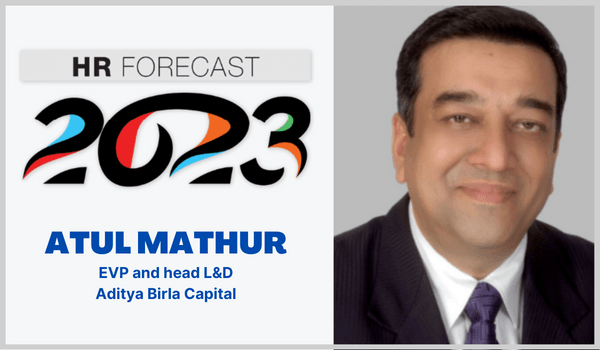2023: Will it be a turmoil again or peace
2023 will make the role of HR more central. From a support function, HR has evolved into the role of an active business partner. Human resource plays a key role in the strategy formulation of an enterprise, and this role is becoming more prominent. Earlier, HR was concerned with a multi-generational workforce but now, in addition to that, there is hybrid working and the gig workforce. The HR policies and practices are getting transformed and this progression will continue in the coming years. The primary focus will continue to be on enhancing productivity and ensuring diversity in the workforce. Some key focus areas will be change management, managerial effectiveness, incubating agile teams and creating a future-ready workforce.
Evaluating a leader: Transparency, empathy, loyalty, mentoring vs business/functional excellence
All of these will be equally important. While functional and business excellence are essential for businesses to be successful, aspects such as emotional quotient (EQ), coaching and mentoring have already assumed significance. People give their best when they have a feeling of being involved and wanted. Leaders will be responsible to ensure that their team members (comprising regular, hybrid or gig workers) feel part of the team, own the team’s agenda and passionately work towards the defined goals. The capability development of the team will be a joint responsibility of the team members and their leaders, facilitated by the HR.
The key focus areas in 2023 will be change management, managerial effectiveness, incubating agile teams and creating a future-ready workforce
Transparency forms the bedrock of trust, and therefore, leaders will need to work in a transparent fashion and also act as role models for their teams. Therefore, starting with the hiring of people in leadership roles, to their development, it will be imperative to look at all these aspects. Leadership development, in particular — because there already are a lot of existing leaders who are only task focussed — will have to entail interventions focussed on people centricity in a sustained manner. Having said this, as mentioned earlier, leaders’ focus on business/functional aspects has to be razor sharp since markets are hyper competitive. Also, given the disruptions in business models, technology and so on, leaders require to be proactive and on top of the changes facing their function/company.
Technology or new world of work reshaping people managers?
Digital transformations and global uncertainties have led to disruption and change. For this reason, organisational design and change management will have to be focussed on. An interesting perspective is that in 2016, the Gartner Workforce Change Survey showed 74 per cent of employees were willing to change work behaviours to support organisational changes. However, that number dropped to 38 per cent in 2022. Therefore, people managers have the uphill task of channelising their teams to move beyond the challenges posed by widespread changes. The role and competencies of people managers, therefore, need to be redefined and recalibrated.
33 leaders predict the upcoming trends for 2023. To find out more click here.



